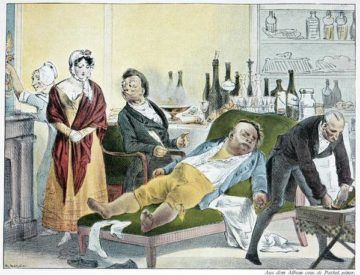by Godfrey Onime

Short and snappy, the smooth-faced lieutenant-colonel who had been appointed deputy inspector-general of hospitals for the British army would butt heads with non-other than the chaste, indefatigable Florence Nightingale. A heroine of Victorian England who was celebrated as the pioneer of nursing during the Crimean War, Nightingale wrote to her sister about their clash, “He behaved like a brute… the most hardened creature I have ever met.”
His name was Dr. James Miranda Barry. Obsessed with hygiene, when inspecting his troops he would bark, “Dirty beasts! Go and clean yourselves!” The standards of even ‘the lady of the lamp’ Nightingale were not high enough for Dr. Barry, and I can just imagine the differential Nightingale trying not to show her fuming as the doctor berated her in front of her subordinates. Unlikely as it may seem, this short-tempered “brute” turned out to be the champion of women, or more specifically, of pregnant woman – a reason that became more understandable only after his death. Read more »


